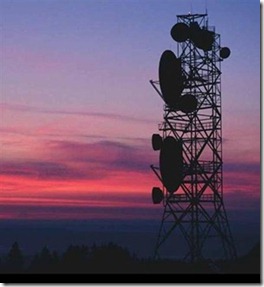 Canada's industry minister vowed Thursday to overturn a regulatory ruling that effectively put an end to small Internet service providers offering unlimited downloads.
Canada's industry minister vowed Thursday to overturn a regulatory ruling that effectively put an end to small Internet service providers offering unlimited downloads.
"It is unacceptable that this decision stands and we will reverse this decision," Industry Minister Tony Clement told the House of Commons.
"It is important to protect consumers, innovators and creators, as well as small and medium-sized businesses," he said.
The Canadian Radio-television and Telecommunications Commission, or CRTC, ruled last week that telecommunications giant Bell can charge wholesalers that lease bandwidth on its network based on usage.
Many of these smaller service providers offered their customers unlimited Internet access at set rates, relying on bandwidth Bell and other big operators are required to lease to them.
Major telecommunications firms Bell and Telus, as well as cable companies Rogers, Shaw and Videotron do not offer unlimited plans and Bell suggested those offered by smaller service providers were congesting its networks.
Nearly 360,000 Canadians signed an online petition calling for the decision to be overturned, fearing it could lead to higher prices as consumers download more and more data such as high resolution movies or play games online.
Earlier CRTC chairman Konrad von Finckenstein defended the ruling, telling a parliamentary committee: "Ordinary Internet users should not be made to pay for the bandwidth consumed by heavy users."
He noted that a very small percentage of consumers are heavy Internet users.
According to the CRTC's Communications Monitoring Report, Canadians used on average 15.4 gigabits per month in 2009.
Likening the Internet to a public utility, von Finckenstein added the CRTC's view remained "that usage-based billing is a legitimate principle for pricing Internet services."
Clement told reporters he felt the CRTC's ruling "would have a huge impact on consumers and would hurt small businesses, would hurt innovators and creators."
He said he understands that bandwidth capacity is a problem, but usage-based billing "is the wrong way to do it."
The CRTC "must go back to drawing board," Clement also tweeted.
 Now there is a benefit of 200 FREE Minutes and SMS on every International Top-up of Rs.1000 or more sent to Mobilink customers in Pakistan via ezetop affiliated partner in UK, UAE, US, Spain or Saudi Arabia.
Now there is a benefit of 200 FREE Minutes and SMS on every International Top-up of Rs.1000 or more sent to Mobilink customers in Pakistan via ezetop affiliated partner in UK, UAE, US, Spain or Saudi Arabia.






